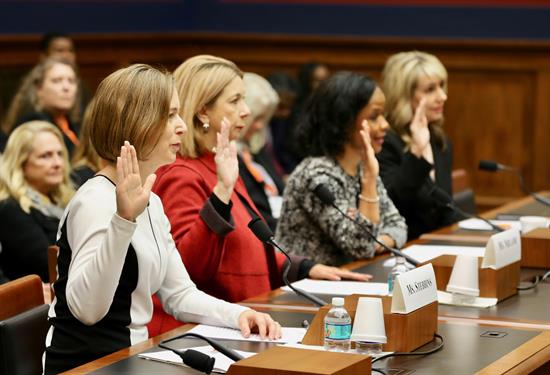Today, the Subcommittee on Early Childhood, Elementary, and Secondary Education, chaired by Rep. Todd Rokita (R-IN), held a hearing on “Strengthening Welfare to Work with Child Care.”
“Federal welfare programs act as a vital tool to help families find a way out of poverty, and many welfare programs assist parents in finding a good-paying job to help them end their need for welfare benefits,” said Chairman Rokita in his opening statement.
Subcommittee Chairman Rokita continued, “The witnesses before us today bring many different perspectives and many different stories on the importance of child care programs for welfare beneficiaries, and will provide us with insight into how Congress should continue to explore ways to support child care programs that help parents who receive federal assistance move into work and away from welfare.”
Members of the subcommittee heard from various experts about the power of high-quality child care in helping more people break the cycle of poverty.
Ms. Brigitte Nieland, Vice President of Education and Workforce Development for the Louisiana Association of Business and Industry, explained the importance of child care on Louisiana businesses and the state’s economy as a whole.
“Early learning is critical to our ability to do business,” Ms. Nieland said. Nieland went on to explain how access to child care “affects employee attendance, retention, and promotion, impacting a company’s productivity and ability to grow.”
While it is important to work towards solutions that maximize efficiency in the workplace and productivity of families, Ms. Helene Stebbins, Deputy Director of the Alliance for Early Success, stressed that child care done right does not simply provide parents with a safe place to leave their kids, but can help develop a child’s brain.
Stebbins explained that “in order to thrive, children and adults need nurturing, supportive relationships in settings that foster development and learning.”
Stebbins continued, “If we want to break the cycles of intergenerational poverty, then we have to focus on making sure child care is child development, and not just a safe place for children to go while their parents are at work.”
Dr. Laurie Smith, Mississippi Governor Phil Bryant’s Senior Policy Advisor on Education and Workforce Development echoed the sentiment, and went on to tell members that a focus on providing high-quality child care must not come at the expense of a comprehensive plan to simultaneously assist the whole family.
“A key lesson learned is that the plan to help our children cannot be disconnected from the plan to help their parents,” Dr. Smith said. “Our early evidence shows that a family approach can produce transformational results for our children and our parents.”
High-quality child care can have a lasting positive impact on a child’s development, and access to excellent child care can be an essential piece of the puzzle as parents work to move off of federal assistance and into independence.
The Subcommittee on Early Childhood, Elementary, and Secondary Education will continue to explore the role child care should play in the welfare system so that more families may break the cycle of poverty and achieve self-sufficiency.
# # #

